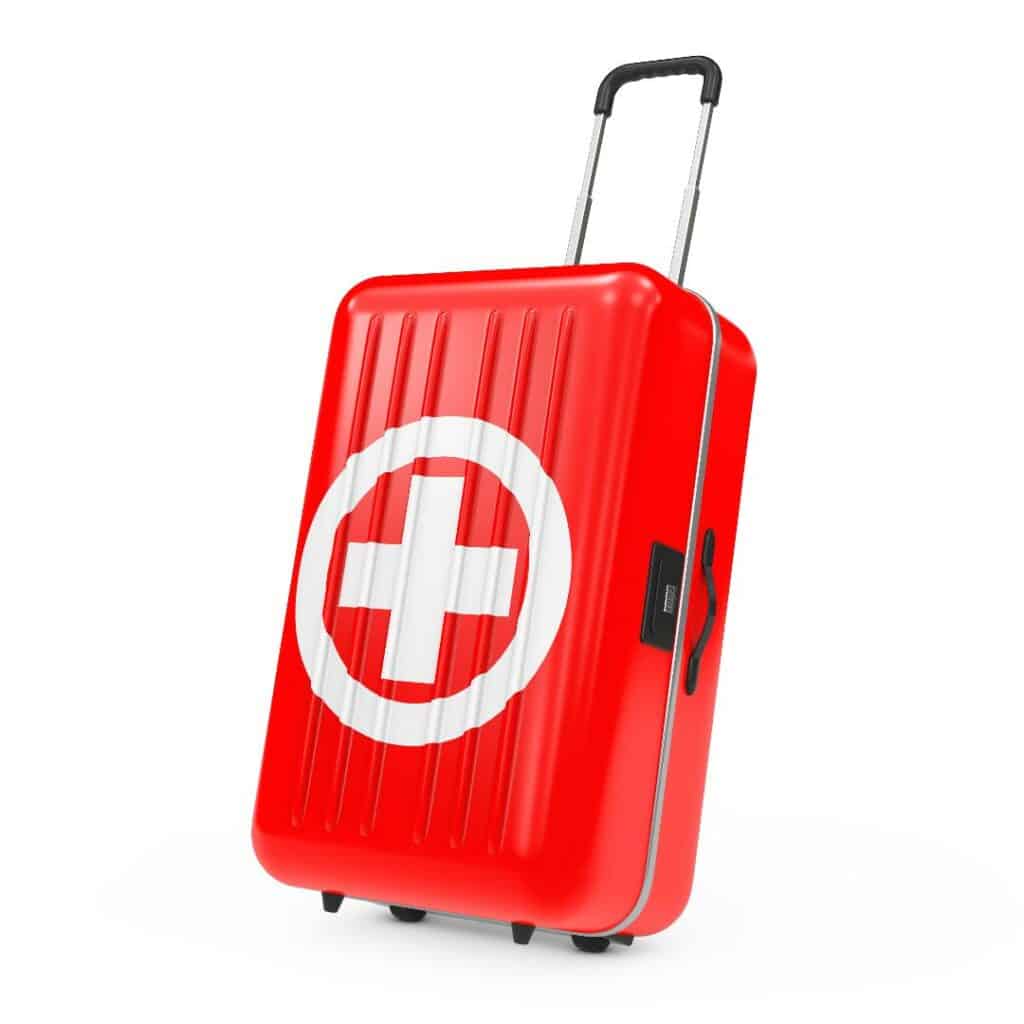|
Getting your Trinity Audio player ready...
|
Tips and resources for staying healthy while traveling no matter where your plans take you.
A lot of planning goes into getting away and no matter where you go, as a traveler your top priorities are usually being safe and staying healthy while traveling. When these two are taken care of, there is no limit to the amount of fun you will have.
Whether you have clocked a hundred or a thousand miles on the road or have collected two or 20 stamps on your passport, the traveling bug in the form of a severe stomach ache, nausea or cold is always a possibility.
The key is preparation and so we reached out to Dr. Yolanda Lawson based in Dallas, Texas, for a checklist of what to pack as well as tips and resources to ensure you return from your travels as healthy as you left.
“For travel, I usually say take some type of medicine for pain or fever. Most likely that will be Tylenol, but I usually ask people to pack aspirin and the reason I do that is for that little thinning and prevention of clots,” says Lawson.
“Traveler’s diarrhea is huge. A lot of the time it could be spices and we are all kind of weary of water in other places. It could be bad meat, it could be bad fruit or unwashed lettuce, so I always have you pack an anti-diarrheal such as Imodium or Pepto.”
Lawson also points out planning for altitude and motion sickness. Experiencing either of these can easily shave a day or two off of your trip as you recover.
RELATED: 7 Helpful Hacks for Hassle-Free Packing
What to Know Before You Go
Planning to fly long distance? Be sure to eat a low-sodium diet, drink plenty of water and limit your alcohol consumption to reduce your chance of retaining water in the lower part of your body, especially around the feet and ankles. “Anytime you are sitting for a prolonged period, you can be susceptible to swelling in the lower extremities,” says Lawson.
It is all about direct contact for the common cold, so while products such as Emergen-C are marketed as helping to support the immune system for prevention, Lawson says hand washing as well as carrying bacterial gels and wipes play a more effective role in stopping the virus from spreading.
“Think about being on a plane. They are supposed to clean but you can change flights and someone who was in your seat could have been sick, so if you have the little wipes with you to wipe down the surfaces and tray table, that is quite helpful.”
In addition, Lawson visits the Center of Disease Control’s website with patients once she knows where they are going to advise on additional precautionary steps.
In past years, the Zika virus dominated the news for women traveling to certain parts of the world, but Lawson points that both men and women should take prevention steps such as wearing an insect repellent known to protect not only against Zika but the Dengue and West Nile viruses too.
Lastly, check out the website Passport Health that features specific information about the destination you are looking to travel to. They also provide personalized travel consultations.
Packing Checklist For Staying Healthy While Traveling
- Acid reflux such as Tums or Alka-Seltzer
- Anti-bacteria hand sanitizer and wipes
- Anti-diarrheal products such as Imodium A-D
- Aspirin or other pain and fever medicine such as Tylenol
- Benadryl
- Dramamine for motion sickness
- EpiPen or epinephrine injector for allergic reactions
- Ibuprofen for body and muscle cramps
- Insect repellent that repels mosquitoes that may be carrying Zika, Dengue and West Nile viruses
- Kleenex tissues
- Mini first aid kit
- Sunscreen
Now that you are ready to go, be sure to consult with your physician for personalized trip needs while keeping these tips and checklist in mind for staying healthy while traveling.








